https://www.freepressjournal.in/business/imc-playing-crucial-role-in-shaping-business-environment-says-anant-singhania
Anant Sighania talks about the increasing relevance of IMC

Singhania has been involved in the activities of educational institutions, organizations and charitable trusts in the J.K. Organization and elsewhere. He was a Trustee of JK Trust, India’s largest private NGO in the animal husbandry field and a Trustee in a few other public Charitable trusts in the fields of education and medical facilities.
Apart from business, Singhania has been a member of the Executive Committee of the Indo-Italian Chambers of Commerce and the Managing Committee of the century-old IMC Chamber of Commerce and Industry. He is the Co-Chairman of FICCI – Maharashtra State Council and an Executive Committee member of the China – India Forum.
In an insightful interaction with Dominic Rebello and RN Bhaskar (both from the Free Press Journal), Singhania shares his views on the role of the IMC in shaping the business environment of the country and how the institution is helping the youth and its members to explore international shores for trade and business.
Edited Excerpts

What is your role at IMC? What changes do you want to bring about during your tenure?
The IMC Chamber of Commerce and Industry, popularly known as the IMC, is a very old institution. It was founded on September 7, 1907, and this year we will be celebrating our 115th Foundation Day. It is a chamber which was started by a few Indian merchants, who came together to establish a Swadeshi institution to fight for the rights of the Swadeshi businesses.
We have had a very illustrious legacy and now I have been empowered to take it forward. We have a base of about 5,000 odd members and over 150 trade associations affiliated to it through which we reach a collective audience of about 4,00,000 members.
These 4 lakh members are from various industries and trades. We also have about 22 expert committees. These are the segments that we cater to and that is where our membership mostly exists and where we want to be. For example, we are in the agriculture space, banking space etc. The Chamber’s banking and finance includes NBFCs because for MSMEs to survive, they need finance and at a reasonable cost. Another area where the Chamber is very strong is international business. We have our flagship event called ‘India Calling’. Under this initiative, we have been taking our members abroad for the last couple of years and even during Covid-19, we have been having it inbound and in the online space. This initiative has been very successful. We also take up the areas which are focused on the future including green energy.
India is celebrating 75 years of Independence. How is IMC participating in it?
This year we are celebrating Azadi ka Amrit Mahotsav which is an initiative of the Government of India to celebrate 75 years of Independence and the glorious history of the country’s people, culture, and achievements.
That is the theme broadly. But as the president of IMC, we have a prerogative of choosing a theme and I have chosen ‘Partnering for Growth’ because I think that’s an area that is required and something that I want to reaffirm. The chamber has always stood as a partner to its members, the community and to the government.
There are several other initiatives of the Chamber which have gone in writing to the government in terms of thought papers and in terms of policy issues. We had sent a recommendation three to four years ago on export financing. Now the way it works is that when small exporters export their products, they have to get an Export Credit Guarantee Corporation of India (ECGC) cover.
Now, the exporter is covered in case of a default, he is covered with the ECGC premium and a guarantee that the money will be paid to him. However, the exporter’s credit rating is still where it is. If the exporter in an MSME with a double CC or -B or –C, his cost of capital is still high, because of that rating.
So, we approached the government saying that whether it is ECGC or RBI or the Commerce Ministry, you must increase the scope of the cover to include not only the principal outstanding but also the unpaid interest and the coverage needs to be increased from the current 50 per cent.
I am very happy to state that this initiative of ours was recently accepted by the government and announced the enhancing of insurance coverage to 90 per cent to help reduce exporters’ costs and boost their business. With a higher rating, the exporter can borrow money at a cheaper rate and the banks too can lend a higher amount.
How does IMC’s International Alternate Dispute Resolution (ADR) Centre operate?
IMC Chamber of Commerce and Industry has been rendering services of Institutional Arbitration for the last many years to those who are desirous of resolving their commercial disputes expeditiously and economically. Realising the acute need for institutional arbitration with a fixed cost and time-bound schedule of proceedings, IMC embarked upon establishing a comprehensive International Alternate Dispute Resolution (ADR) Centre. At present, this kind of service is provided in Singapore, Paris and London only and a number of Indian Businessmen had to travel to these centres to settle their disputes.
We are working very closely with the Parliamentary Standing Committee on arbitration and on mediation. We recently met Union Minister Kiren Rijiju. When we spoke about our arbitration mediation centre, he said, “Look, we are changing the Delhi Mediation Center to International Mediation Center because we can’t have a country mediation centre which is named after a state capital.”
I said that we have been doing it at IMC, which has a working arbitration committee, for the last thirty years. IMC has handled 79 cases, which have been institutionally arbitrated, and none of the awards that were given has been challenged. That itself is a record for a cent per cent award to be given in an effective period of time in a cost-effective way. And since none of them has been challenged, it means that it enjoys acceptability and that really speaks volumes.
So over time, from the IMC Court of Arbitration, we moved it to a slightly robust panel called IMC International Arbitration Center. The third floor of the IMC building is dedicated to this activity. We have our own rules for arbitration. We have our own panel of judges, lawyers, councils, our own fee structure and we have a time-bound activity. We have now got ourselves empaneled with the Bombay High Court so that they would give us such cases for mediation.
There is the Mediation and Conciliation Project Committee. (MCPC) and they too have accredited us to be part of it. That is another area where we are very active because we have a lot of professionals from the legal side on our committees. It has been an intrinsic part of the Chamber’s activity.
Recently, the government came up with some progressive laws on director’s liability. That is an area which we had taken up in the past and now we are taking it up again. We are telling the government what we feel as an industry because if it wants more independent directors to come into the space, it needs to make sure that they have a field where they’re not going to be ostracized, or they don’t have to feel like a challenge because being an independent director does not mean that they are empowered. It does not mean that they are going to take on undue liability within the scheme of things.
How does IMC connect with the youth?
We have a dedicated Youth Leaders’ Forum (YLF). YLF was set up to provide the educated and talented workforce with a platform to voice their opinions and to act collectively in addressing crucial issues and common concerns. We work with youngsters in the age group of 20 to 30. IMC provides them with a platform for mentoring, and learning, in terms of getting them involved by visiting establishments, interacting with people and doing other things that young people like to do whether it’s the space of crypto or gaming. Nowadays the youth is also involved in matters relating to climate change; they want to know what’s happening to the city, what is happening in the continent, and the country. So, there’s a lot of engagement. The other area that we are working on is startup and innovation. We have seen the galloping growth of unicorns in the last year. And India has got a huge potential in financial services, the Internet of Things and now the industry, with bated breath is waiting for the 5G revolution as it is going to open up a plethora of services. Besides mentoring, we also provide a platform for connecting startups to knowledgeable people from the relevant sectors.

How are you engaging with the government?
In the last two to three weeks, we met more than a dozen ministers which in itself is a record of sorts. We are engaging with them and have invited them to the city to meet our members, but the meeting is not the end of the game. The meeting is just a way to restart the conversation and build on the conversation.
For example, when I went to Delhi I engaged with the shipping minister. He said, “I can’t meet you in Delhi. I will meet you in Mumbai.” When he came to the city, we organised a meeting between him and 35 members of the industry within 12 hours. He had a very engaging conversation with the members and immediately there were three takeaways which came up the following week. He wanted to get all our recommendations in writing which we sent to them. The second is that he talked about 110 waterways in India, which are being developed as internal waterways. That will connect the movement of goods within India. This is an untapped area and there are some challenges that need to be taken care of. For example, dredging is a challenge because some of the rivers are not deep enough. Some are not full all year round. They have to ensure that and hence they are connecting these rivers in such a way that goods can move from north to south, east to west and vice versa. Today for example, if I have to send some goods from Mumbai to Bangladesh it has to go via the sea, but if today if it can go via a connection of railway to waterway and back to the railway to waterway, it would be amazing.
How do you see the fiscal year 2022-23 spanning out?
We had uncertain times at the start of the year; we were coming out of COVID-19. Things were good to go. We had very high projections, I think 9-10% projections and then we had rising inflation, commodity prices surging and then we had the Russia, Ukraine war. All this completely changed the way the whole world works; the entire supply chain has further been rattled. Then, recently last week. we had Pelosi visiting Taiwan and the jets were out, the military was out, and the uncertainty related to that, apart from that there’s already been an overhang of chips shortage. Today passenger vehicle sales are going through the roof or 15-20% rise in a year, which is very favourable. But the point is that there is still a demand, which is being untapped, or we are paying a higher price for shortages. Today, if it were possible, we would buy vehicles at some discount. Now the demand outstrips supply and everything is priced higher. Ultimately, somebody has to pay for it — for passenger vehicles, and commercial vehicles. The prices are rising and people have to pay for them. Corporates are buying these vehicles and it is going to impact the inflation numbers.
And how do you see IMC’s contribution to society increasing through membership? Do you conduct any such activities?
I think IMC is basically very conscious about its role in society. IMC is keen to connect with its membership. We are already initiating some programs to connect with the membership in a bigger way, both digitally as well as physically. The theme that have chosen is ‘Partnering for Growth’ through which we want to make sure that all our members understand the benefit of associations. We had a meeting with the Consul General of Belarus and invited our members to meet them. We immediately checked our database and found five people who are having some initiatives with Belarus. Our back office called each of them up and asked them that we are going to engage with Belarus, would you like us to raise some issues? So that’s a way that we are trying to engage now.
We get about 15 to 20 delegations a year from various countries, whether it is inbound or the Consul Generals’ outreach to them. And each time we are trying to raise the bar by getting the right connection. For example, in the Australian delegation, we knew there were five people from real estate. So, we had a few members from the real estate who could either exchange cards or engage in dialogue, depending on the time factor as well.
Anything more that you would like to add…
As a Chamber, we are part of the ‘Har Ghar Tiranga’ campaign. In fact, we reached out to all our members to raise the flag on the 13th 14th and 15th of August and also to post selfies to bring in the national pride. We are very keen and committed to the government’s initiative. The second initiative is ‘One District One Product’ scheme. I was in Delhi when the government launched the scheme. Handicraft households, for example, prepare goods which are available on this platform. There’s an appeal to all our members to buy one product from there. If only each one of us just buys one product on the platform, 10 crore products will be sold and that improves their value of living, will improve rural spending, it will improve rural purchasing power and that will also make a big difference in our FMCG space because this empowers the bottom of the pyramid and the benefits of that go all the way to the top.
Our other initiative is that we are working with the Ministry of Earth Sciences. We recently met Union Minister of State (Independent Charge) Science & Technology; Minister of State (Independent Charge) Earth Sciences; MoS PMO, Personnel, Public Grievances, Pensions, Atomic Energy and Space, Dr Jitendra Singh and extended support for Mumbai sea beach cleaning as a part of the 75-day Coastal Clean-Up campaign initiated by the Ministry of Earth Sciences from 5th July this year. IMC is part of that campaign and will mobilise our resources for the rejuvenation and beautification of “Queen Necklace”, which is popularly known as Marine Drive Beach.
The campaign is to keep the 7500-kilometres-long coastal line of India clean, safe and healthy for mankind. The campaign is culminating on September 17, which is International Coastal Day. We are also working on forming a human pyramid along Marine Drive because there is no beach. This is something that is very close to our hearts and we are taking it up in a big way.
This is the first part, then we have the plastic awareness campaign. Earlier we used single flex plastic for posters but now we are not going to print anymore because this comes under the category of single-use. We are looking at alternatives. We are building this into our entire ecosystem. At times it is difficult but we are working on changing the mindset.
These things go into the waterways, and the seas are lining up with plastic. It is contaminating the sea and the environment around us. So, we are trying to create awareness of this issue.


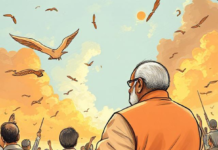


























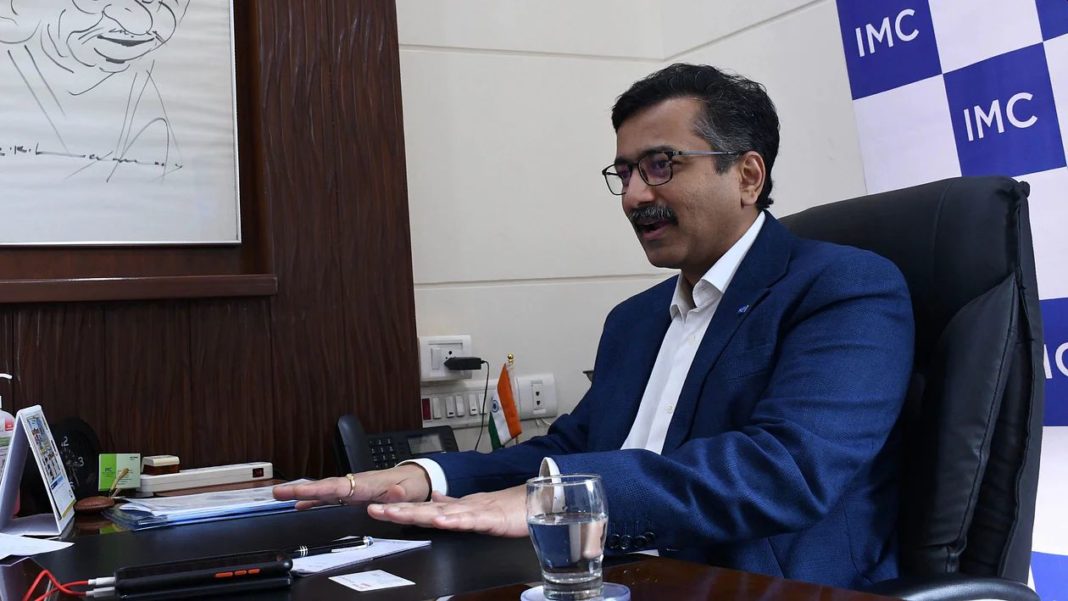
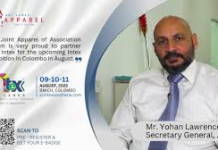

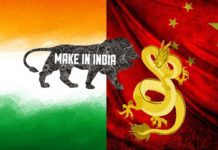






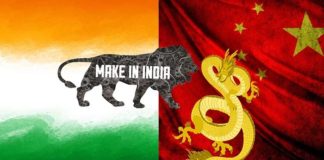
COMMENTS